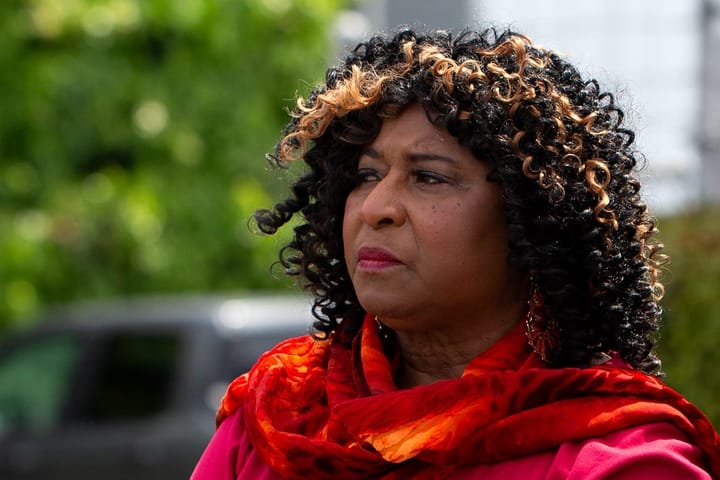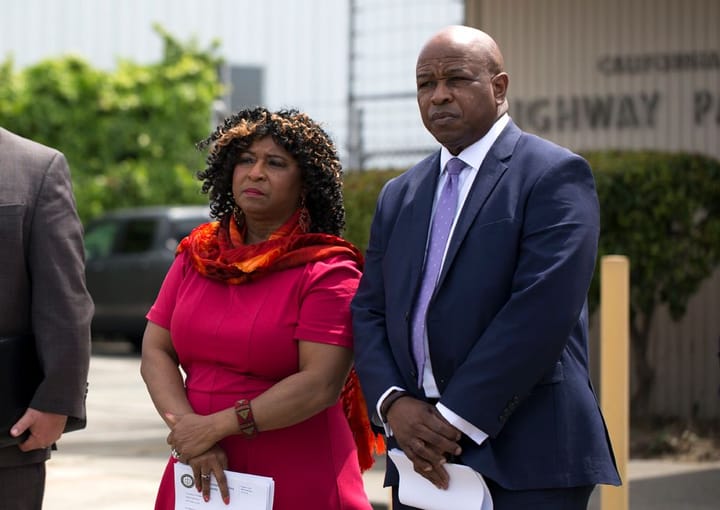Pamela Price's first month as Alameda County DA sees big moves, leaves many questions
Pamela Price has declined to talk about her biggest decisions, citing confidentiality around pending investigations and personnel matters.
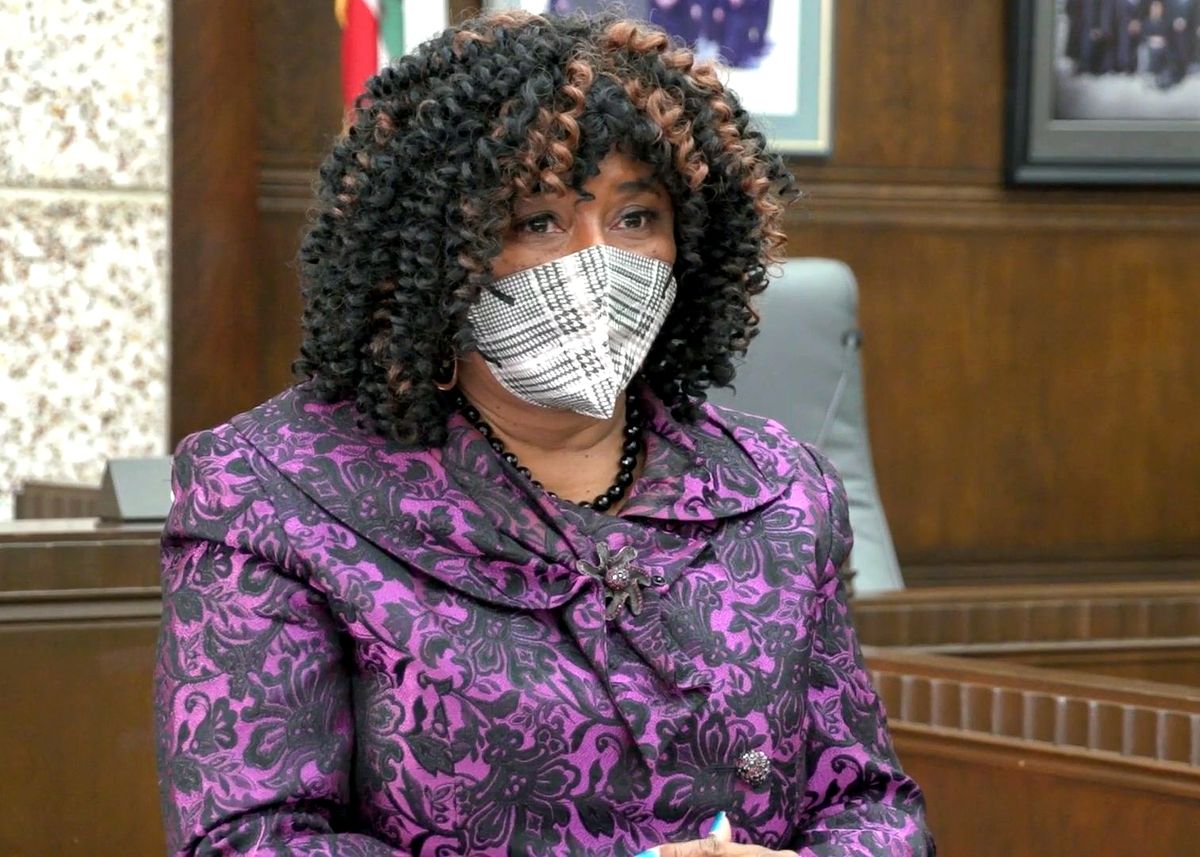
In the month since Pamela Price took charge as Alameda County's new district attorney, she has put a half-dozen of the office's most experienced prosecutors on leave and fired its top two investigators, dismissed special circumstances in a high-profile murder case and created a funereal atmosphere for many employees, numerous sources familiar with the situation told The Berkeley Scanner in recent weeks.
Nearly three weeks ago, in an internal memo about staffing changes and what Price called "our transition to a new season," she directed employees not to speak with the media about any personnel matters including transfers and leaves.
That directive had a chilling effect: Multiple people say they are now worried about ongoing efforts to track down office leaks. The Scanner has granted anonymity to all sources related to this story in response to deep concerns about potential workplace retribution.
"They’re just trying to silence everybody," one person said.
Employees in the DA's office say their biggest question now is how they can continue to serve the victims and families of Alameda County as they watch what appear to be Price's efforts to dismantle key components of the operation.
On the campaign trail, Price announced a 10-point platform to "restore public trust in our criminal justice system." But to date, there has been no overarching internal directive about where that work might start.
Instead, staffers have witnessed a parade of new hires while longtime colleagues have been walked out of the building in an unprecedented manner described by some as "unprofessional," leaving many people wondering who will be next.
"Everybody is walking around like it’s a funeral," one person said. "She’s taken almost all of our most experienced trial lawyers and either transferred them or put them on leave. And the few who are left are waiting for it to happen to them."
Price promised as much during remarks at a recent Anti Police-Terror Project protest in Oakland.
"Yes, it’s a new day. Them other folks is gone, most of 'em. I’m working on the rest, OK?" she told the crowd, which responded with shouts of enthusiasm.
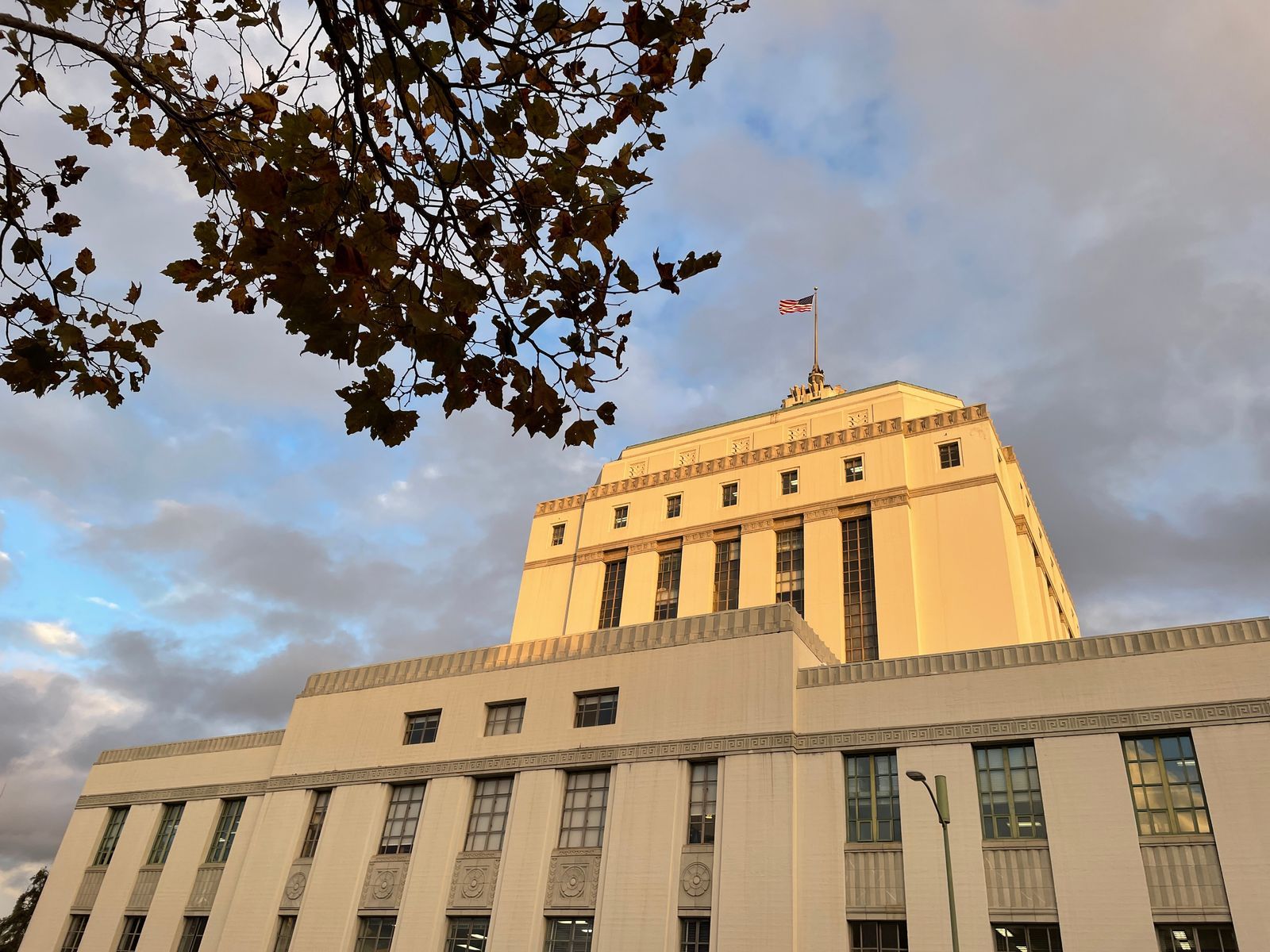
The DA's office already had staffing problems
As of the end of last year, under Nancy O'Malley, the Alameda County district attorney's office was already severely understaffed, with many of its lawyers "drowning" under the workload.
There were about 135 prosecutors on the payroll and the office had a 1,000-case backlog, according to one estimate.
Historically, the office has charged about 5,000-7,000 felonies each year and about 15,000-20,000 misdemeanors.
The office relies heavily on its most experienced trial attorneys, those who have been in the office for 20-30 years and are still eligible to try Alameda County's most complex criminal cases.
Those top-tier prosecutors are tasked not only with trying the toughest cases but also with teaching the next generation how to prepare for the challenges ahead.
Before Price's first day, Jan. 3, that group numbered around 12-15.
During her first weeks in office, Price placed six of the most senior prosecutors on administrative leave, some on allegations of prosecutorial misconduct and others in relation to a single campaign-related email from 2018 when Price unsuccessfully challenged O'Malley.
People familiar with the allegations say they are unlikely to hold up and that the prosecutors may well get their jobs back. But, in the meantime, the move has left a gaping hole in a critical area and taken a heavy toll on the office.
"There is no replacement for them," one person said. "There is nobody who can fill their shoes."
"The victims are the ones who suffer," said another. "The residents of Alameda County suffer if they don’t have their best and brightest trial lawyers available to fight for justice for the victims."
Some of the attorneys who were placed on leave had been named in a public defender's motion in 2021 that asked a judge to recuse the entire DA's office from a murder case due to alleged misconduct.
An Alameda County Superior Court judge ultimately rejected that motion, saying it fell well short of the "required legal standard," the East Bay Times reported at the time.
In 2020, the prosecutors had joined the Teamsters union spurred by remarks from the Price campaign in 2018 indicating their jobs would be on the chopping block in the event of a subsequent Price win.
As a result of their contract, the county is required to continue paying the prosecutor's salaries while they are on administrative leave. And they will also have a chance to appeal any personnel decision before it can be made final.
The process is likely to take months if not longer.
Over the past month, Price has also transferred nearly 20 attorneys to different roles around the county.
Some of those moves seem aimed at decimating the trial and preliminary hearing teams, which Price and members of her administration have openly referred to as "incarceration units,” sources say.
Transferred attorneys have not received any advance notice, a change from past practice, people said. They have only learned of their new duties through office-wide memos. Historically, people were informed directly about transfers and got two weeks' notice to prepare.
Sources say many of the transfers have left them scratching their heads and appear arbitrary and potentially punitive — putting senior attorneys back into positions traditionally held by junior prosecutors and, for some, greatly extending commutes without regard for seniority or circumstances, another major change from past practice.
The moves have also left significant gaps in institutional memory regarding basic aspects of how the office works, sources said.
Serious issues have already arisen as a result, sources say, including new hires accessing confidential information without the requisite background checks, new DA staff attempting to speak directly with criminal defendants in jail, a practice that is prohibited, and, in other cases, new employees coming into the courthouse armed with firearms without the commensurate level of clearance.
Some of those missteps prompted a lengthy meeting with the county counsel's office early on, sources say.
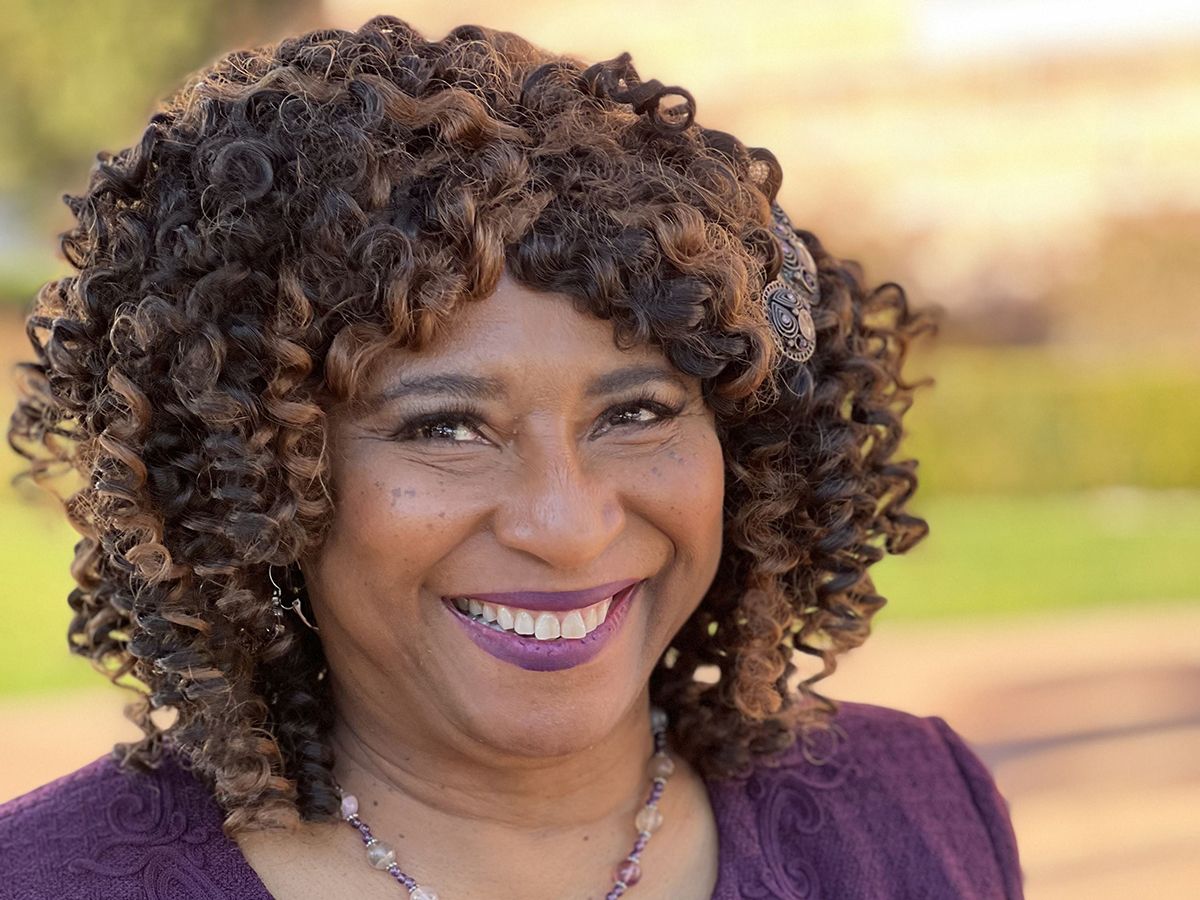
"A distinct eagerness to charge police"
Office stress has been exacerbated by a lack of internal communication, people familiar with the situation said.
"It's been chaotic and uncertain," one person said. "Any change in leadership brings changes in policy and in the way things are run. I think the hardest thing is that she hasn’t really made any announcements about what those changes are."
Last week, Price issued a public statement to announce the creation of a new Public Accountability Unit that will focus on "holding law enforcement and public officials accountable for misconduct."
It was Price's first external announcement about a major new initiative and was covered extensively by the media.
As part of that work, Price said she would review eight in-custody deaths and officer-involved shootings dating back 15 years to see if they might warrant criminal charges.
In December, outgoing District Attorney Nancy O'Malley reviewed three of those cases and found they did not justify criminal charges, Price said in her announcement.
"As the top prosecutor, I want to give each case a thorough review to ensure justice has not been forgotten," she said in her announcement.
Most people who work inside the Alameda County district attorney's office received no advance notice about the creation of the new unit, sources said.
But numerous people did hear Kwixuan Maloof, the Price transition team member who will run the new unit, loudly proclaim in early January through his open office door that "I came here to charge cops. They better be ready. They better Google me!"
People familiar with the situation said members of the new administration don't seem to understand the ethical obligation DAs have when it comes to charging cases because many of the new hires have little or no background in criminal law.
"We cannot pursue a case if we don’t think we can prove it to a jury beyond a reasonable doubt," one person said. "There is a distinct eagerness to charge police officers and a lack of understanding about what it entails to actually file a complaint. It's not something you can do based on what you’ve read in the news or your personal political proclivities."
In the past, attorneys' views were generally respected if they said they did not think they could prove charges to a jury. That is no longer the case, sources said.
Add to that, sources say, a number of Price's new hires have said they don't plan to try cases themselves — and have been assured they won't have to.
That's left many people in the office wondering who will actually be required to put their names on charging papers and appear in court, especially when it comes to trial.
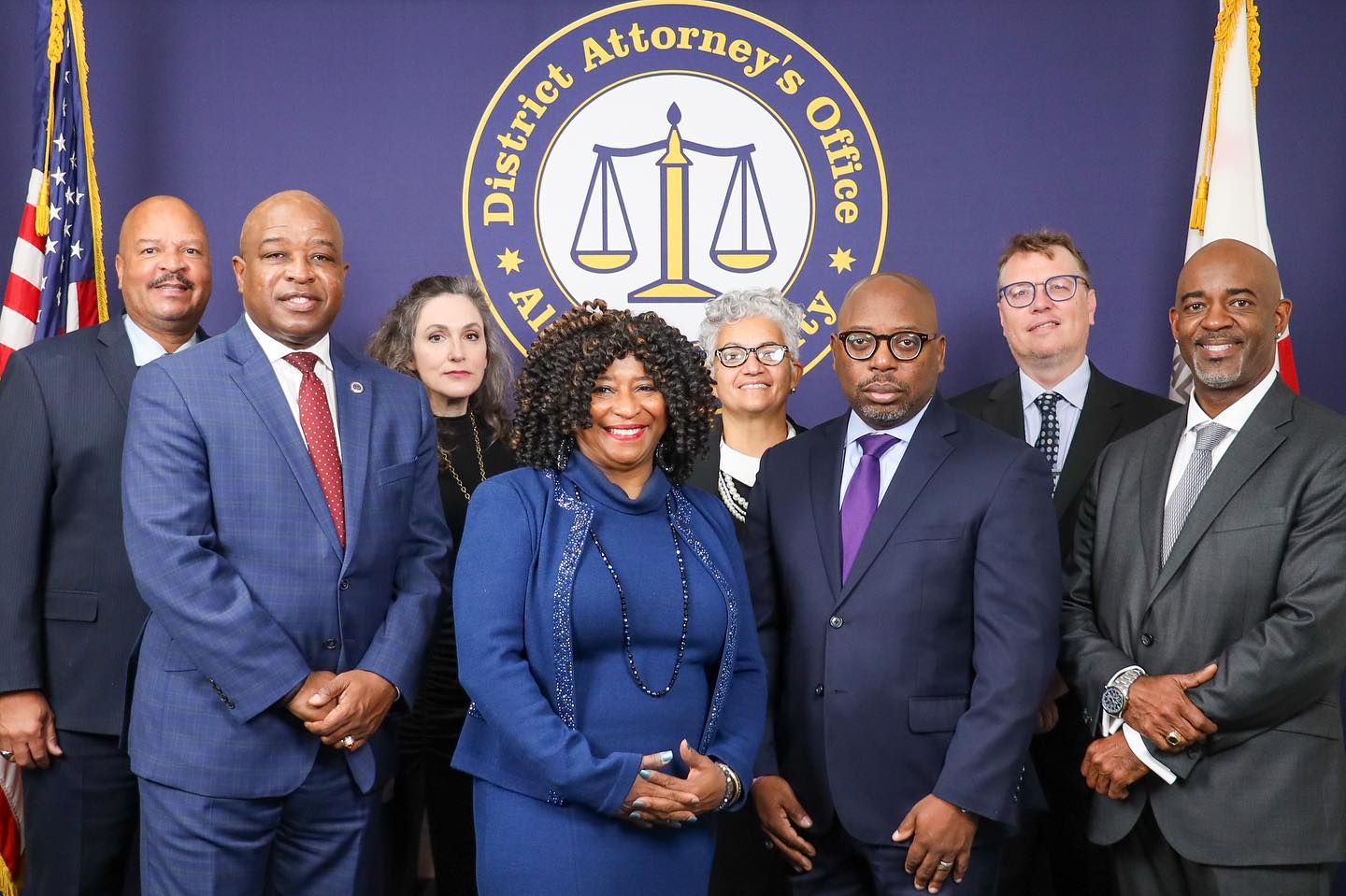
Pamela Price: "Elected to disrupt the system"
In November, Pamela Price defeated opponent Terry Wiley by securing 53% of the vote: Of the 431,000 or so ballots cast in the race by Alameda County voters, she received about 27,100 more than Wiley.
Wiley, a longtime prosecutor in the Alameda County DA's office, has since retired.
Price, a civil litigator whose career largely focused on employment law and civil rights cases, is the county's first Black district attorney. She has said she views her win as a mandate.
"I was elected to disrupt the system and transform the system," she told the San Francisco Chronicle. "That isn’t lost on me."
Price told KQED in December that her priorities included finding new ways to engage with community stakeholders as well as the local criminal justice system.
She said she would not use convictions as a measure of success but would instead look closely at alternatives and solutions to pervasive problems such as racial disparities in law enforcement.
"The exciting part is that we do get to reset our relationships across the board — our relationships with police, our relationships with probation, our relationships with the community, our relationships with the Board of Supervisors, our relationships with elected officials, our relationships with victims and victim advocates," she told KQED. "All of that’s on the table now."
In addition to Kwixuan Maloof, Price's leadership team includes second-in-command Otis Bruce Jr., who came from the Marin County district attorney's office; Chief Assistant District Attorney Royl Roberts, from the Peralta Community College District, who just passed the bar in July 2022; civil litigator Simona Farrise Best; and Berkeley Law lecturer Cynthia Chandler.
She also brought on Chief Inspector Eric Lewis, who retired from the Oakland Police Department after a personnel issue arose in 2021.
Lewis had applied to work as an investigator in the DA's office several years ago but was not hired. He is now in charge of the division.
More recently, Price internally announced a number of new hires, calling them "amazing, dedicated warriors for justice."
They included Alexandra Grayner, Ryan Khojasteh and Dana Drusinsky, all of whom had been brought on at the San Francisco District Attorney's Office under Chesa Boudin, who was recalled by voters last year.
Grayner was a Boudin supporter who quit her job in a widely publicized letter last year after Brooke Jenkins took over the SF DA's office.
Khojasteh, who was with the SF public defender's office before being hired by Boudin, also went to the media with his story of being fired when Jenkins took over.
Like Khojasteh, Drusinsky was also with the SF public defender's office before going to work for Boudin and was later named in a whistleblower lawsuit by an SF DA investigator who said he had been fired in an act of retaliation related to what he said was an improper search warrant, as reported Bay Area media outlets.
A raft of Alameda County cases will be scrutinized
Aside from the accountability unit announcement last week, Price has said little about her plan or vision in the past month, sources say. It has contributed to a widespread air of unease.
There have, however, been clues about what's to come.
Price has asked attorneys to send in all of their cases dealing with defendants under 26 years old and defendants who may have been human trafficking victims, as well as all cases involving anyone charged with strikes.
Price also asked attorneys for their cases where the crimes may have involved mental illness, gang enhancements and murders involving special circumstances, which can increase the punishment when there is a conviction.
She initially said she would get back to people within one day if their cases were in trial — but that didn't happen, sources say. As a result, a number of cases are stalled and there's a lack of clarity about what will become of them.
Price has still made no announcements regarding how her office will handle those cases across the board.
But she did drop special circumstances allegations in one murder case — and appears poised to do the same in another — following tense meetings with the families of victims, sources say.
The first of those cases involved convicted killer David Misch who has been charged with murdering two Fremont women and a 9-year-old Hayward girl in the 1980s.
On Jan. 10, KTVU reported Price's decision to drop special circumstances in the Misch case, which means he will no longer face the possibility of life in prison without parole or the death penalty (which is already on hold in California).
Critics took to the media to decry Price's position on the Misch case, calling it a "total betrayal" for the victims' families and saying it took a key piece of leverage off the table as the case proceeds, KTVU reported. That includes the possibility of leading authorities to the 9-year-old's body, which was never located.
Sources said they are also concerned about the fate of the case because the prosecutor who had been assigned to handle it, Colleen McMahon, was among the office veterans who were placed on leave last month.
Other longtime prosecutors who were placed on leave include John Brouhard, Butch Ford, Brian Owens, Connie Campbell and John Mifsud.
"These are all of our toughest attorneys, our gunfighters," one person said. "These are smart attorneys who do things right."
Multiple people said they only see the situation getting worse from the perspective of existing employees, given the people who plan to give notice to leave but haven't yet and complex cases that may be left hanging as a result.
"The more morale dips, the more people leave. And the more people leave, the more cases that they leave behind," one person said. "That just leaves victims and witnesses in the lurch in a way I think everyone would like to avoid."
Delonzo Logwood murder case has also been reviewed
Last week, sources said, Price also met with the families of victims said to have been killed by alleged gang member Delonzo Logwood. The case was scheduled for trial this week.
Authorities say Logwood killed three men in 2008 when he was 18.
The victims included a 24-year-old witness in a shooting case who was gunned down on his mother's front steps weeks before he was set to testify and two other men — allegedly killed with the help of an accomplice — in what has been described as a murder-for-hire plot.
Sources familiar with the matter say Price agreed to a continuance in the case so she could speak directly with the defense.
Since taking charge, Price has repeatedly communicated with defense attorneys while leaving prosecutors out of the loop, a practice that was unheard of under former District Attorney Nancy O'Malley, sources say.
Price has not announced whether she plans to drop special circumstances in all of Alameda County's murder cases that include them or continue to consider the cases individually.
That has contributed to the atmosphere of confusion in the office, sources say.
"It's the slow grinding stress of not knowing," one person said. "Everybody's kind of on edge."
The county currently has an estimated 1-2 dozen special circumstances murder cases on the docket.
Sources familiar with these cases say the families of Alameda County murder victims will likely have a tough time with what appears to be the new approach.
"There will be blowback. These families have a lot invested," one person said. "And we want every ounce of justice we can get for them."
Already "the most liberal office in the country"?
On the campaign trail, Price promised transparency but, in her statement last week, said her office would not discuss her new Public Accountability Unit with the media "as these are now pending investigations."
Price has also declined to talk about any of the staffing decisions she's made, citing confidentiality around personnel matters.
Her office declined to comment on the subject this week in response to an inquiry from The Berkeley Scanner.
Looking ahead, multiple people told The Scanner that it's too soon to think about a recall and that, for now, people in the office primarily just want to understand what is expected of them without the looming threat of the next shoe to drop.
"We want to try to find a way to make it work," one person said. "People are demoralized. But we are still in this job because we care about this community and these people. We just want to do right by our victims."
Another person said, politics aside, there continues to be a deep commitment to the broader community.
"We work for the job and the office. We work for the victims," he said. "We can’t lose sight of the mission and I don’t think people here are."
Some say they feel that one message that may have gotten lost along the way is how progressive the Alameda County district attorney's office already is.
Internally, the office has long prided itself on its progressive programs and ideals.
There are longstanding diversion programs, including "collaborative courts" related to mental health and substance use, among other factors.
Attorneys already consider someone's age and developmental disabilities when making charging decisions and "easily and readily" agree to diversion, deferred prosecution and deferred judgments in many misdemeanor cases.
"I think it's the most liberal office in the country, more so than in San Francisco," one person said. "I never wanted to work in a DA’s office in South Carolina or Texas or Kansas. To see her campaign on a slate of policies that are already in place was kind of strange."
But the office doesn't keep or release statistics on its diversion programs, sources said, and has not spent much energy publicizing them over the years.
The focus has been on just doing the work and serving the people who opt to use those programs.
"The office takes into account progressive politics much more than other district attorney's offices when we look at making offers and resolving cases," one person said. "The office considers whether someone grew up with a bad lot in life and had no opportunities. It's always taken those factors into consideration. Maybe they don’t win the day but they matter."



